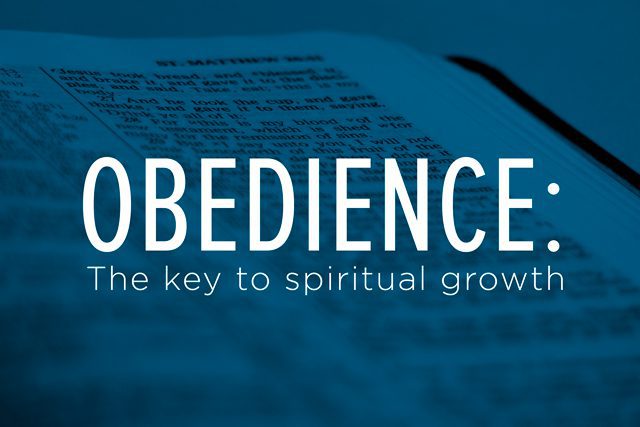Obedience is an oft-discussed yet frequently misunderstood tenet in the Baha’i Faith. It serves as a pivotal foundation for spiritual maturation, governing the relationship between individual aspirations and divine guidance. In exploring Baha’i teachings on obedience, one embarks on a transformative journey that culminates in a heightened sense of spiritual growth. This guide endeavors to elucidate key concepts associated with obedience, its implications for followers, and its integral role in the pursuit of spiritual enlightenment.
The Essence of Obedience
At its core, obedience in the Baha’i context transcends mere compliance; it encapsulates a profound alignment with divine will. Baha’is believe that the laws and teachings of God, as revealed through the Manifestations of God—such as Baha’u’llah—serve as guiding principles for the betterment of humanity. Embracing obedience thus becomes an avenue to engage with the divine, fostering a harmonious existence within the frameworks of socio-spiritual development.
Understanding obedience requires an exploration of its dual nature—obedience to God and obedience to societal law. While these two aspects may converge, they can also diverge, necessitating discernment and thoughtful engagement on the part of the individual. The foundation of this discernment lies in the understanding of the divine purpose for humanity, which is ideally realized through obedience to spiritual laws that promote unity and justice.
The Transformative Power of Obedience
One may wonder, how does obedience catalyze spiritual growth? The Baha’i teachings offer insight into this transformative power. Abiding by spiritual laws enhances one’s inner capacity to foster virtues such as honesty, integrity, and compassion. With practice, these qualities fortify one’s moral character, nurturing a spiritual identity that bears the hallmarks of divine attributes.
Moreover, obedience nurtures a sense of inner peace and stability. In a world rife with uncertainty, cultivating a lifestyle anchored in obedience provides clarity amid chaos. One learns to relinquish personal desires in favor of a greater communal good. As Baha’u’llah states, “The best way to rise above all limitations is to become obedient to the teachings of the Cause.” Herein lies the paradox: through surrendering one’s will, a broader, more expansive perspective emerges, revealing pathways that were previously obscured.
Challenges in the Pursuit of Obedience
The journey towards obedient living is fraught with challenges, demanding introspection and resilience. Individuals may grapple with conflicting societal norms that stand in opposition to Baha’i principles. In modernity, where autonomy is often exalted, the relinquishing of individual will can feel counterintuitive. Yet, the Baha’i teachings emphasize that true freedom dwells in adhering to spiritual mandates rather than succumbing to transient whims.
Moreover, the practice of obedience requires vulnerability. In allowing oneself to be guided by divine wisdom, an individual acknowledges the limitations of personal understanding. This surrender can lead to discomfort, especially when faced with transformative teachings that prompt a reevaluation of long-held beliefs and biases. Embracing this discomfort is a vital step in spiritual maturation, inviting growth in ways that were previously unimagined.
The Role of Community
An essential dimension of the Baha’i approach to obedience is the community. Baha’is are urged to practice obedience collectively, fostering a culture of mutual support and accountability. This communal endeavor serves to reinforce commitment to spiritual tenets and the individual’s understanding of obedience within a broader societal context. The power of collective engagement offers a reservoir of strength, encouraging individuals to navigate the complexities of obedience while sharing in a journey of spiritual growth.
Additionally, the community acts as a living embodiment of Baha’i principles. Through collaborative initiatives and service projects, members experience firsthand the impact of obedience on societal well-being. These engagements solidify the understanding that obedience is not merely an individual pursuit but a collective aspiration that ultimately enriches the fabric of community life.
Embracing Obedience as a Source of Empowerment
To mature into obedience is not to surrender oneself to subjugation; rather, it is to embrace empowerment. By aligning one’s will with divine directives, individuals discover an inner strength and purpose that transcends superficial existence. The principles of obedience, when thoroughly internalized, cultivate resilience and determination, equipping individuals with the tools necessary to effect meaningful change in their lives and the lives of others.
It becomes evident that the path to spiritual growth through obedience is deeply personal yet inherently interconnected. Individuals may navigate their journeys in solitude, yet the fruits of their obedience resonate within the community. Every act of devotion, every commitment to serve, reverberates through the collective consciousness, influencing societal evolution.
Conclusion: The Journey Ahead
In conclusion, maturing into obedience within the Baha’i framework signifies a voyage laden with introspection, challenges, and profound rewards. It invites followers to transcend expectations, nurture virtues, and cultivate an inner landscape conducive to spiritual enrichment. The teachings of Baha’u’llah advocate for a dynamic engagement with obedience that proves transformative not only for the individual but for the collective. Thus, as individuals strive towards obedience, they embark upon an enriching journey towards spiritual growth, awakening a deeper understanding of their roles within a greater cosmic tapestry.
This exploration into obedience is not merely about following rules; it is an invitation to discover the possibilities that lie in surrender and alignment with a higher purpose. As Baha’is engage with these principles, their lives can exemplify the tenets of unity, justice, and love, inspiring others to ponder the profound depths of obedience as they navigate their own spiritual journeys.
